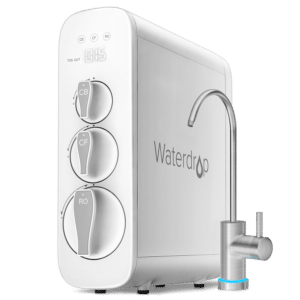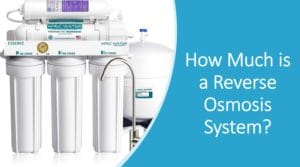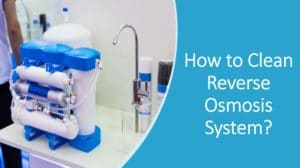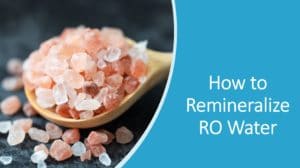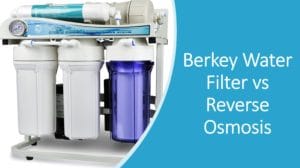Reverse osmosis is one of the most effective ways to remove contaminants from your drinking water, but lately, the RO Process has been raising some doubts. There’s a debate as to whether the benefits of RO outweigh the drawbacks.
If you’ve been asking, “is reverse osmosis water bad for you,” we’re here to offer answers. We’re going to go over how reverse osmosis can affect your water and whether or not it’s safe for you to drink.
Is Reverse Osmosis Water Bad For You?
There’s no evidence that RO water is dangerous for a healthy adult to drink. In fact, in most cases, it’s better to opt for RO purified water than anything that comes from your tap. RO membranes are designed to filter out all impurities so that you don’t have to worry about potentially harmful contaminants making you sick.
While RO water is safer than unfiltered water, it does boast a more acidic pH. Water from your tap tends to have a neutral pH of around 7 to 7.5, but water purified through reverse osmosis often has a pH of between 5 and 7.
For most people, a higher pH poses little cause for concern. RO filtered water is much less acidic than many other beverages we commonly enjoy, including fruit juice, coffee, and most carbonated beverages. According to the EPA, water with a pH anywhere between 6.5 and 8.5 is completely safe for human consumption.
While some people claim that alkaline water boasts more health benefits than acidic water, there’s little evidence to back up this claim. The only people who may need to stick to alkaline water are those who are trying to follow a low-acid diet. This may include people who suffer from conditions such as gastrointestinal ulcers or acid reflux symptoms.
For most healthy adults and children, RO water is perfectly safe, if not safer than the alternatives. With an RO system, it’s important to change the membrane filter as needed for it to maintain effectiveness.
Otherwise, your filter may not be removing as many contaminants from your water, leading to a dangerous buildup of minerals.
If your filter is no longer effective at removing contaminants then its a sign that you need to buy a new RO system. You can refer to our article on NSF certified reverse osmosis systems for recommendations on what to get.
Does Reverse Osmosis Remove Healthy Minerals?
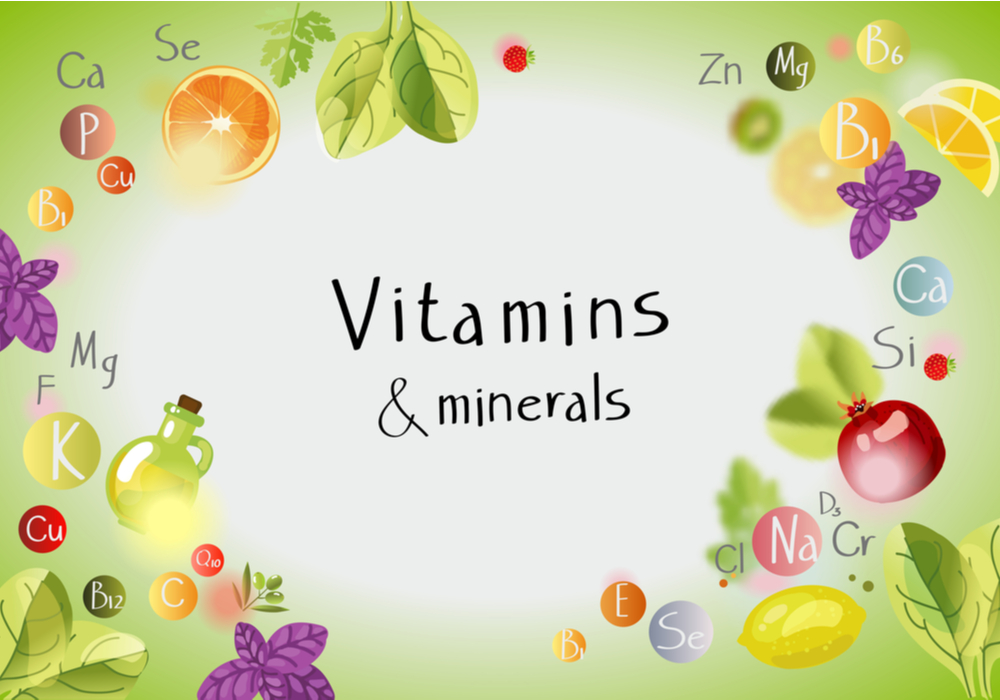
One of the most common reasons that people ask, “is reverse osmosis water bad for you?” is because the process removes both good and bad compounds from drinking water. While minerals such as lead, cyanide, and chloride can be detrimental to our health, others are essential in trace amounts.
The RO process doesn’t make a distinction between wanted and unwanted chemicals. An RO filter will remove almost any impurity from your water, including both organic and inorganic material.
While RO water contains fewer essential nutrients than unfiltered sources, it’s important to note that we don’t typically rely on our water as our primary nutrient source. Instead, people should be getting the majority of essential vitamins and minerals from a balanced diet.
Because we don’t necessarily need nutrients in our drinking supply, RO water offers a perfectly healthy option for most people. As long as you make sure to eat plenty of fruits, vegetables, lean proteins, and whole grains, you should get the full spectrum of nutrients that you need.
RO water may not be the best choice for people with a poor diet or who are nutrient deficient. Those who need all of the extra minerals they can get may want to opt for a less sensitive filtration system. Just remember that with less effective purification methods, you’re also likely to see higher levels of toxic impurities.
Related: Does Ro Remove Fluoride From Water?
Should I Drink Reverse Osmosis Water?

Installing an RO filter can give you more than just clean, great-tasting water. If you’re still wondering “is reverse osmosis water healthy?”, read on to discover the benefits of using an RO filter.
Remove the Most Dangerous Contaminants
RO membranes are much more sensitive than other filter types, and they remove the majority of even trace impurities that may harm your health. Some of the top contaminants an RO filter can treat include:
- Heavy metals such as lead, arsenic, and chromium
- Copper from pipes and plumbing fixtures
- Nitrates and nitrites
- Excess fluoride
- Toxic soil runoff
- Organics such as bacteria and parasites
- Cysts such as cryptosporidium
- Other common chemicals such as barium and radium
Reduce Sodium Concentration
These days, many of us have high-sodium diets thanks to fast food and processed goods. This can lead to complications such as high blood pressure, heart disease, and even stroke. As many as 90% of Americans consume unhealthy levels of sodium daily.
Unlike soft water filters, which only remove “hard” contaminants, an RO filter also tackles minerals such as sodium. While not necessarily a toxin, removing sodium from your water can significantly reduce your daily consumption. Drinking RO water is a good first step towards a low-sodium lifestyle.
Protect the Environment
Plenty of people looking for clean, healthy drinking water turn to bottled sources as an alternative to municipal tap water. While bottled water can be delicious and healthy, it produces plastic waste and increases your carbon footprint.
By filtering your tap water with an RO filter, you can enjoy drinking water of just as high a quality as your favorite bottled brand. You’ll save money in the long run, and you won’t have to worry about producing excess waste from jugs and water bottles. Reverse osmosis is healthy for both you and the environment.
In Conclusion
If you’re thinking about installing a water filtration system for your business or living space, you may be wondering: is reverse osmosis water bad for you?
While it does remove some minerals and acidify your water, in many cases, the RO process makes drinking water safer. It removes potentially toxic impurities such as lead, arsenic, and other waterborne contaminants. What’s more, it offers an eco-friendly way to enjoy crisp, refreshing water each day.

